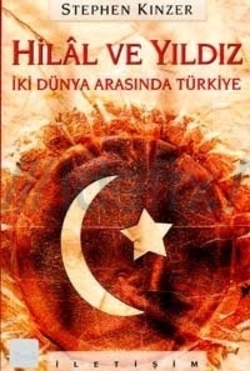 The title is banal and the prospect of another Times man's book summing up his foreign stint gives pause. But Kinzer, New York Times bureau chief in Istanbul during 1996-2000, has written a powerful, directed, and important book. Rather than give vignettes - "300 pages of newspaper columns" as one critic puts it - he has a thesis which he returns to again and again, making his case and wearing down the reader's resistance.
The title is banal and the prospect of another Times man's book summing up his foreign stint gives pause. But Kinzer, New York Times bureau chief in Istanbul during 1996-2000, has written a powerful, directed, and important book. Rather than give vignettes - "300 pages of newspaper columns" as one critic puts it - he has a thesis which he returns to again and again, making his case and wearing down the reader's resistance.
That thesis is that the time has come for the powers-that-be in Turkey to get out of the way and allow the country to develop in a thoroughly democratic way. Kinzer is alive to the advantages in the past of having the military and its allies (summarized by the Turkish phrase derin devlet or "deep state") guiding the Turkish government and society but holds that the country is now ready to bust out of its "ossified" condition and go for full-fledged democracy.
Kinzer draws this conclusion in every chapter of Crescent and Star: when discussing Atatürk, the military officer corps, the earthquake of August 1999, relations with Greece, the Kurdish insurrection, and the Islamist opposition. In each discussion, he conveys information easily and purveys a sense of contemporary Turkey. And in each one too, he ends up with a new reason for the military to pull back. The author sees Turkey's chance coming up very soon: either break with the old ways and become a major success and model, or stick in the same rut and slowly decline.
 One has a sense that Kinzer sees himself as the spokesmen for those Turks who lack his full freedom of speech; therefore, the true readership of his book will be those who read it in a possible future Turkish translation, especially if they wear uniforms. In all, Crescent and Star amounts to an impressive achievement with a high potential to make a difference.
One has a sense that Kinzer sees himself as the spokesmen for those Turks who lack his full freedom of speech; therefore, the true readership of his book will be those who read it in a possible future Turkish translation, especially if they wear uniforms. In all, Crescent and Star amounts to an impressive achievement with a high potential to make a difference.
Jan. 1, 2004 update: Crescent and Star has appeared in Turkish as Hilal ve Yıldız.
